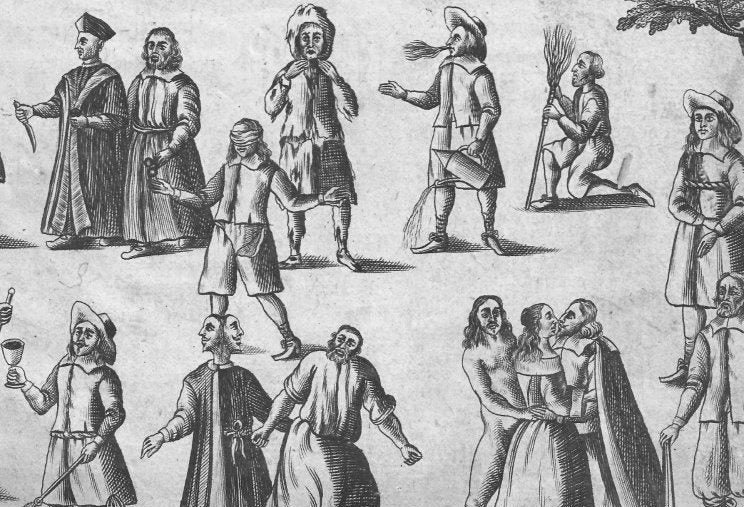Printing, Pestilence, and Survival: A Seventeenth Century Example
A conference by Brooke Sylvia Palmieri, followed by a discussion with Ben Kinmont.
Lecture in English.
Listen to the lecture on France Culture !
At the Grand Palais, during the time of the Paris Antiquarian Book Fair (April 11-14), Ben Kinmont will be presenting archival material related to Mary Everard (c.1637-1685) and the Everard family. The family included many prominent radicals and agitators of the Interregnum Period, and exemplified the spirit of Antinomian thought during the English Civil War. As part of this presentation, Dr. Brooke Palmieri will also be giving a talk entitled « Printing, Pestilence, and Survival: A Seventeenth Century Example. » The talk will focus on the history of the Quakers and the role of archives in assuring the survival of marginalized communities.
The use of movable type in cities across Europe after 1450 fundamentally changed the circulation of knowledge, both in print and in manuscript. But in England, it took two centuries for the revolutionary possibilities of the press to reach a fever pitch, in what has become known as the « print explosion » of the late seventeenth century. Crucial to this explosion was the collapse of state censorship, and an increase in short works by Antinomian groups, or religious “fanaticks,” beginning in the 1640s: Ranters, Seekers, Diggers, Levellers, Baptists, and eventually, the Quakers. Amidst a crisis that culminated in the beheading of King Charles I, printed information was at times celebrated as a revolutionary exercise in Liberty, and at times condemned as a plague and a threat to the nation. The Quakers drew their membership from earlier radicals and published about a pamphlet per week beginning in the 1650s, advocating the belief of the ”inner light” over the letter of the law, and a concept of “Truth” that was based upon that individual spirit. Yet so intense was hatred toward Quaker beliefs, that not only were they brutally persecuted throughout the 1660s, but their pamphlets were deemed heretical and often destroyed. The Truth of Quaker experiences was dependent upon their own ability to create and maintain an archive that could support their printing habits, even while under extreme duress. Taking as its starting point this environment of upheaval and bloodshed, this lecture will focus on the example of early Quakers such as George Fox, Ellis Hookes, Mary Fisher, and Mary Everard. Their experiences allow for a clearer understanding of the place of the archive among marginalised groups more broadly, documenting the interplay between individual and collective struggle, and ultimately, destruction and survival. The Quakers survived, archived, and saw into publication their beliefs and experiences of persecution, initiating a tradition of documenting struggle that has lasted now for over three centuries—the oldest continuous radical archive in the English language.
Brooke’s Bio:
Brooke Sylvia Palmieri is a writer, educator, and bookseller. In 2017, Brooke completed a PhD at University College London–Compelling Reading: The Circulation of Quaker Texts 1650-1700–documenting the communal reading, writing, archiving, and publishing habits of Quakers. Building from that background in the history of social movements, in the summer of 2018, Brooke launched Camp Books, a travelling book & print shop featuring texts related to queer history. Camp Books also provides the raw material for workshops on better understanding—and preserving—the archives of the oppressed, which Brooke regularly delivers in schools, libraries, and galleries.








